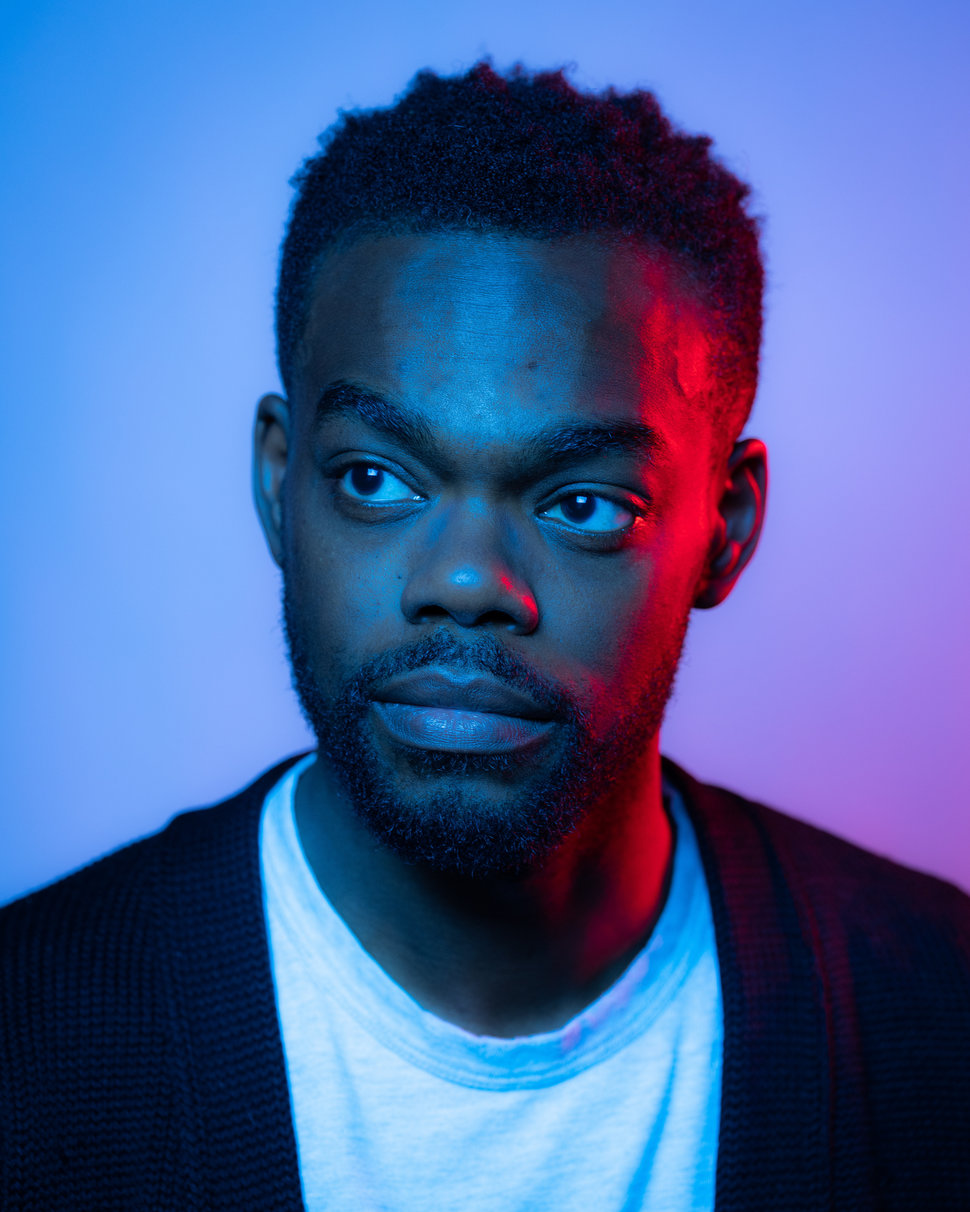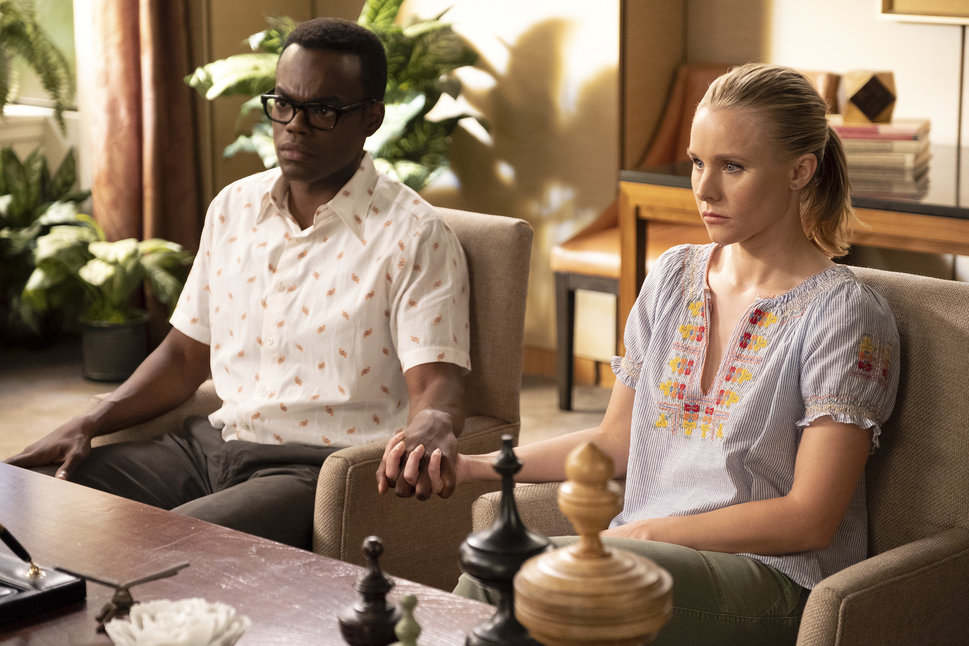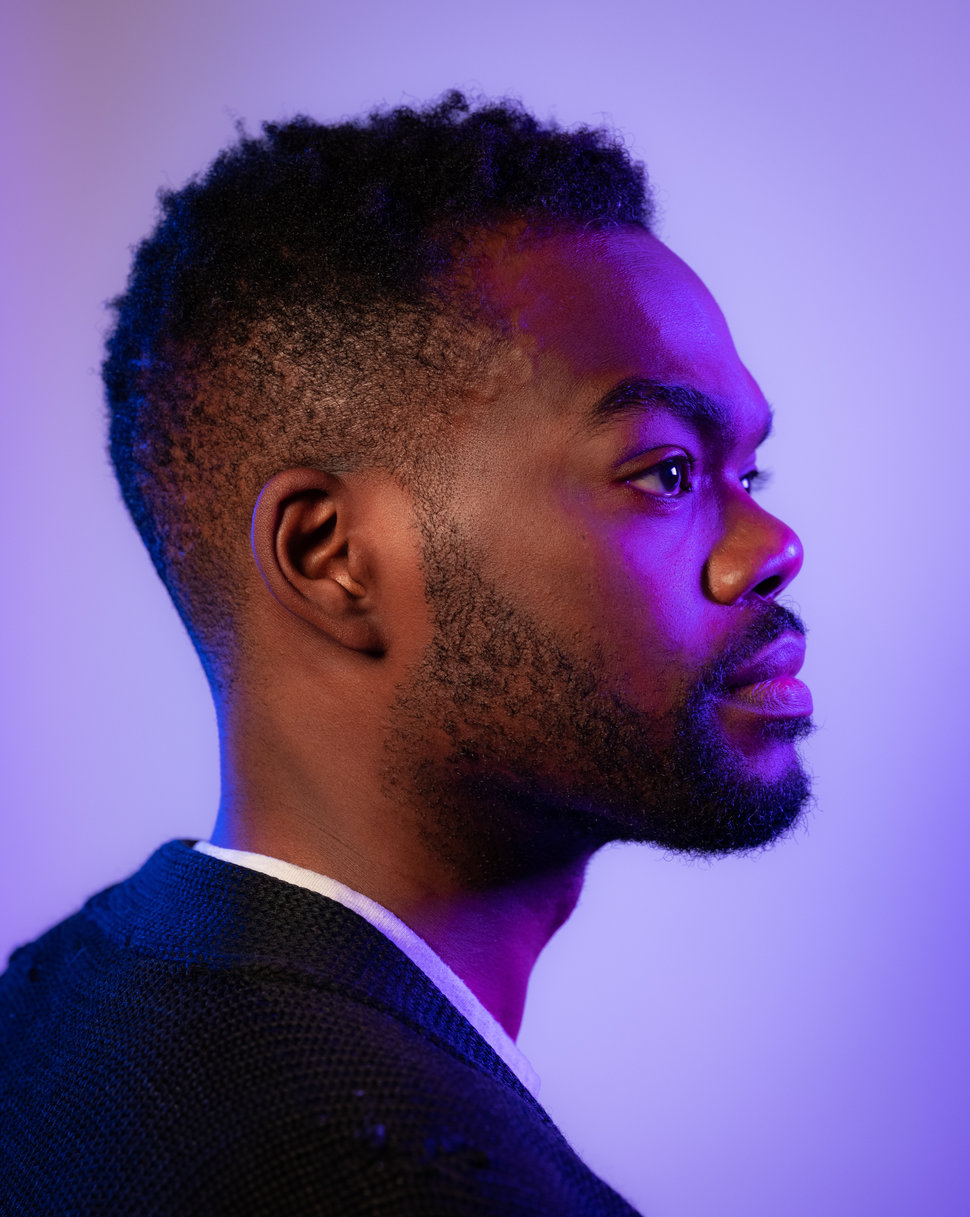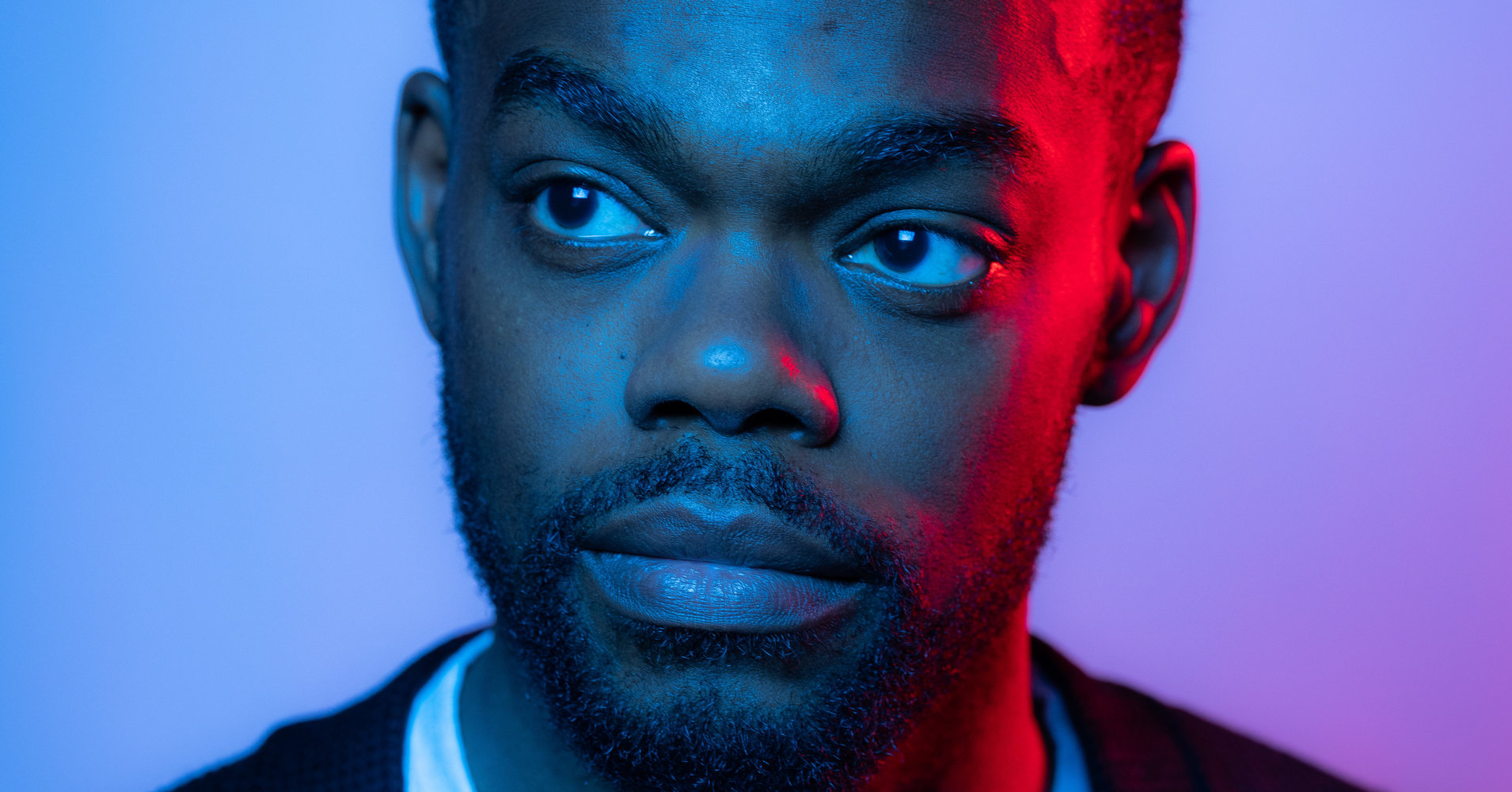[ad_1]
When is the last time you saw a dark-skinned black man onscreen have as many layers as a neurotic, indecisive, handsome, nerdy ethics professor who has frequent panic attacks and is also the love interest?
No, not the caricature that is Steve Urkel. Chidi Anagonye of “The Good Place.” William Jackson Harper, the actor behind the Nigerian-Senegalese character, is helping to usher in a more multilayered and whole character that we rarely get a chance to embrace. Harper, who got his start in theater, is a breakout on the NBC show.
As the show wraps up its third season, its hard not to notice his glow up. Just a few years ago, Harper was ready to quit acting in pursuit of financial stability. But when the actor, who started in theater, nabbed the role, the world got a view of his talent. Since, he’s debuted his first play, “Travisville,” gotten nominated for a Critics’ Choice Award and given us a thirst trap via a shirtless scene while his character went through a major meltdown.
Harper has built not only a name for himself but also roadblocks to a Hollywood that allows dark-skinned men to be awkward, neurotic sex symbols on screen but, most important, allows them to be whole. For the “We Built This” series, HuffPost talked to Harper about his projects and the responsibility that he upholds to help change the world as an actor.

The title of this project is “We Built This.” We’re all building something. What have you built?
Well, with the aid of an incredible cast and incredible director and a theater, I was able to build a play called “Travisville” about displacement and the racial dynamics of that and go-along-to-get-along politics. And I was able to express some questions and some anger that I felt was actually received in the way that I meant for it to be received. And I think that’s the thing I’ve built that I’m proudest of so far.
That’s really dope. Sometimes we forget that there are people behind these productions, these portrayals who have sound and intentional messaging within [their art]. Overall, what are you trying to say? Or what are you saying with your art?
Well, I think that I’m trying to … I want to inspire people to deal with a world that we have rather than the world that we wish that we had. … And that takes work, and it takes vigilance. And I really want to be a part of that. And I think there’s a lot of great artists that are doing it, and I just really want to be part of that movement.
“The Good Place” is where I was introduced to you as an actor. But in doing a bit of research, I saw you did an interview in which you said that you were going to quit acting before you got that role. Why? What brought you to that place, and what got you through it?
Well, a lack of stability, honestly, brought me there. I was 36 and generally happy with a lot of things in my life, but I just didn’t see how it was sustainable going into later years. It couldn’t stay that way. And I was starting to question whether being an actor was ever going to lead to any kind of stability, and so that’s what kicked it off. I think every actor has that moment because it’s hard. It’s just hard, and it’s not fair. There’s plenty of incredibly talented people that deserve the shot that I’ve gotten, and it’s luck that gives you that shot. And so I was like, “Well, how much can I depend on getting that lucky stroke?”
How did you persevere? How did you make it through?
Well, a lot of talks with my girlfriend, her just listening to me cry and moan and complain. And then, honestly, getting this job was a lifeline. It was a godsend. I needed it, and I realized that’s luck. There’s plenty of people that deserve the shot. And I’m lucky that I got it.
Did you always want to be an actor? What [brought] you to this profession?
My mom made me take theater classes because I was so shy. So, this is all her. She did it. I think for the longest time I thought that acting was just like standing around in pumpkin pants with my hand over my heart professing love. And I was like, “Oh, man, I don’t want to do that. That’s so corny.” But when I realized that it could be so many other things, it could be improv, it could be exploring your deepest fears and anger and unpacking that in front of people, really exploring an aspect of yourself and putting it into this other character .… When I realized that it’s not just giving people what they want but also sort of dealing with who you are in a very raw, very safe way where you’re hiding in public, basically — I needed it. And it just became … I was addicted.
Was there a huge transition for you as far as switching from theater to TV acting?
It is a big transition. A theater is, as far as actors are concerned, a very active practice most of the time because you are in the room and you’re trying to find a way before you even get in front of an audience. You’re trying to find a way to just, like, find the most surprising yet inevitable rendering of a scene or a moment and also something that’s really truthful. And you’re just always asking questions and engaging. With TV and with film, a lot of that work is done on your own. And so it’s just a much more truncated, concise process and also requires a different kind of concentration because you’re just waiting so long in between each shot. Whereas with theater, you are on that stage and you’re being shot out of the cannon and you are responsible for that audience’s experience. And there’s just so many other people in TV that if they don’t do their job, what you do does not matter at all.
So, yeah, it’s a big transition, but it’s also fun because there’s ways in which you just get to be more nuanced on camera because you just have to play the scene as it lays, and you play a much shorter hunk. So you can really mine things sometimes in a way through the playing of it. You can mine more deeply as you play it rather than agreeing, “This is the thing that we’re going to do, and we’re going to shoot ourselves out of a cannon and hopefully that works.”
One thing that I really love about Chidi is that he is this dark-skinned ethics professor who struggles with his anxiety. He’s just so multilayered in ways that I don’t feel like I’ve often seen a dark-skinned man play. When you read that role, what stuck out to you? Was this something that was important to you?
I mean, when I was auditioning, the script that we got to do the audition with was not the script that we were going to be using. I didn’t know I was going to be playing a professor of ethics and moral philosophy. I didn’t know that he was going to be Nigerian, or Nigerian-Senegalese. I didn’t think it was going to be the love interest.
But when I had the meeting with [executive producers Michael Schur and Drew Goddard] and they told me exactly what I was going to be doing and how it was all going to go down, I was really excited. Because, like you said, that’s something that I hadn’t seen a lot of on network television, and I feel like if there is a love story between people of different races, that is the heart of the story, that’s what it is. And for this to be something that is not germane to the existence of this story is important. It’s important to normalize a multicultural world. It’s important to normalize interracial relationships because they exist all around us, and I feel like we just don’t see them much. In the capacity of just existing, it’s usually like, “This is what this is about, and we should all do better.” Right? And this show is about this other thing, and they’re interracial and that’s it. And I think that’s important.
I think that kids will see this and they’ll be like, “Oh, yeah, why not.” I remember growing up, kids would say to me when I happened to like someone who wasn’t black, “Well, you can’t like that person. They’re not like you.” And these are kids. I mean, they’re repeating what they are hearing and seeing. And this is the world that I grew up in and the paradigm that we were used to, and so to have that shaken up, I think that’s great.

I’m wondering where or how you saw yourself reflected as a kid growing up watching TV?
In retrospect, Raj from “What’s Happening!!” very much felt like me in a lot of ways. He was just a nerdy dude — and I mean in a lot of ways, a lot cooler than I actually am. But I was like, “God, see, now that guy I get, that guy I understand.” And he feels very much like me. And I think that there’s a very narrow view of blackness in the media, and I really think that that was sort of one of those things that broke with that idea. And I’m happy to be a part of that. I feel like our show kind of does that and plays with ideas of blackness and masculinity, that it can be broader than what we’ve seen.
What has starring as a dead guy taught you about life and death?
I think that this show deals with morality. It deals with being a good person, and what does that actually mean? And it’s such a big question. Like, there’s no way to come up with some universal law for what’s right, what’s good. But I think the show begs the question, like, what can you do moment-to-moment to put good and happiness into the world? And [it pushes you] to really think about that as you’re going into any encounter. And so I think that’s something that the show is sort of woken up for me, which is just being more conscious of what it is to be good, to really sort of unpack that for myself a little bit more.
What stories have you not gotten a chance to tell yet that you wanted?
Oh, man, so many. Honestly, I’m really interested in stories of the black community in the U.S. Like right after the civil rights movement, I’m really interested in that because I feel like there’s a shift that — I’ve asked my mom about it because I remember her saying that growing up in our neighborhood was very idyllic in a lot of ways. And it was a black neighborhood, and it was the ’60s, and I was like, “Oh, wow, OK.” So at what point did the neighborhood become less idyllic, and what drove that? I’m so curious to figure that out.
It’s really interesting because I feel like, especially when we talk from a historical perspective, there are these blank spots, right? That we don’t address.
It’s like, “Oh, there was slavery and Reconstruction and then let’s fast-forward to the civil rights movement.”
And everything was fixed right there.
And it’s like, no, it wasn’t. It wasn’t. I really want to see what it was like watching those things, watching these new laws and acts being implemented. What were the reactions of people in a society that shifted so quickly? I don’t know. I think it’s really worth mining because I think it’ll help to explain the world that we have rather than the world that we wish we had.

Yeah. Are there any projects that you are working on currently?
I just wrapped a movie with Ari Aster, who wrote and directed “Hereditary.” It’s this movie called “Midsommar.” It’s sort of a pagan, cult, horror thing. And I’ll leave it there because it’s just full of surprises and I’m really excited about it. And I’m actually going to be shooting a movie with Todd Haynes about Rob Bilott, this lawyer who took on DuPont for poisoning the water in this West Virginia town. I’m really, really excited about that project. It’s a study in vigilance in progressivism, and I think that that’s really, really important.
Who are the black history makers, or ancestors or elders who inspire you to continue to do the work that you do?
Oh, man. There’s so many. I think first off, just being a black theater actor you can’t begin to talk about your path into this art form without talking about August Wilson. I feel like his contributions to the American canon surpassed anyone in the 20th century. I mean, it’s so heartfelt and surprising and nuanced, and it’s also one of those things where you read it on the page and it’s like, how do you do this truthfully? How do you know to find your way into these grand stories that sneak up on you the way that August Wilson’s plays do? I’ve never done one. I’ve only seen them. So I have to pay respect to that particular ancestor because I think that you can’t talk about being black in this profession without noting his contributions.
Photo shoot produced by Christy Havranek. Audio production by Nick Offenberg and Sara Patterson. Grooming by Monae Everett.
[ad_2]
Source link

